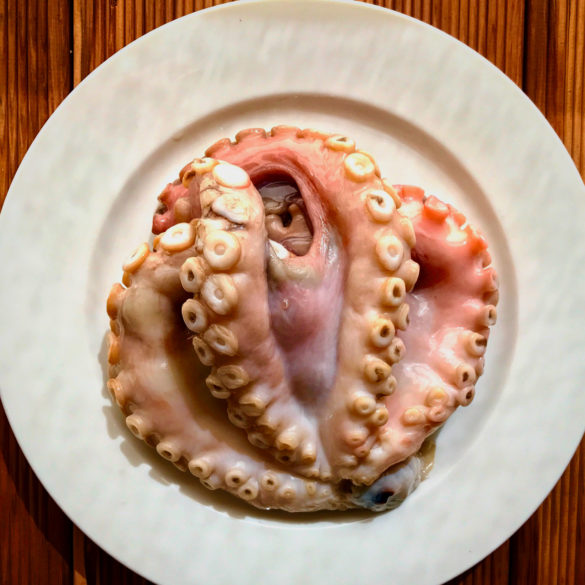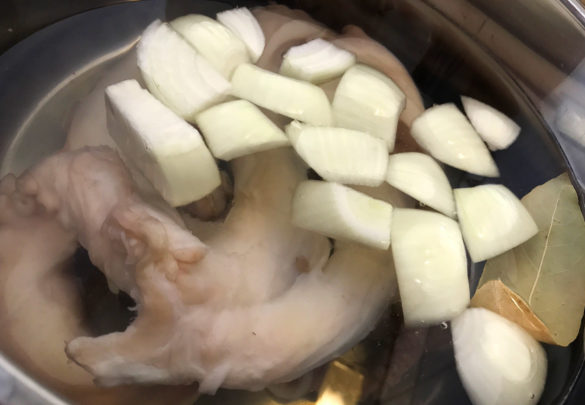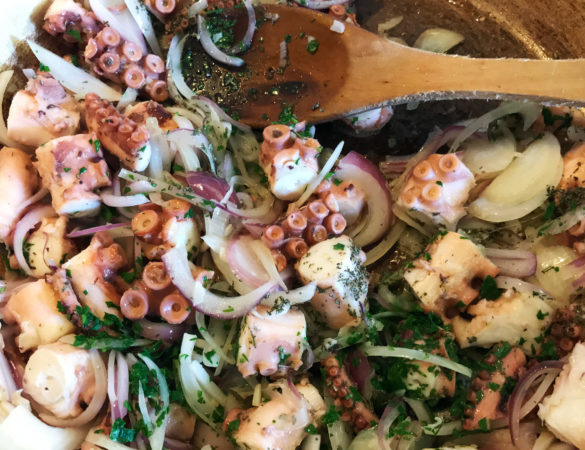The cephalopod returns but in a different, larger form. This majestic creature of the sea, or at least half of it as the whole beast would have been 2.5 kg, was the starting point, or the star ingredient, for dinner last night. There are a couple of ways to cook such meaty octopus. Firstly, there is the quick way, such as frying it in a very hot pan, where the temperature of the octopus is rapidly brought up to 55-57 deg C. (131-135 deg F.) – yeah I know that’s really precise, but the thing is, because the octopus fibres are thin and compact giving it that dense texture they are prone to toughening up when heated; and in this case anything above 60 deg C. (140 deg F.) will give you that tough chewy consistency (a bit like the roast beef I was served as a kid). The other way is to cook it really slowly so that time is given for the muscle fibres to break down. There’s a great little article that goes into a little more detail; here’s the link, I wrote it a while ago.
But more importantly what was I to do with this beautiful piece of the ocean. I decided on a slow cook method, so a stew seemed like a good place to start. If you’ve ever tasted cooked unseasoned octopus, or squid for that matter, then you’ll know that it’s pretty tasteless – hey, would you like a bit more science?
“Awww yes please, I didn’t think you’d ask you cheeky little blog writer, you” I hear you say.
Go on then. Because an octopus lives in salted water it needs to maintain a balance of salt in its body. So that it doesn’t absorb too much salt – through a geeky named process called osmosis – it has chemicals within to prevent it from doing so. The main chemical is known as TMAO (trimethylamine oxide) and it’s this chemical that leads to its flavourless taste. What I’m getting round to saying is that octopus needs some strong flavours to get the best out of it, which is why it is often pickled.
So, thinking about strong flavours, I know that octopus goes really well with tomato, red wine and herbs (don’t know where I pulled that one from). Anyway, I love cooking with a decent Merlot as it has a mellow but juicy palate often with lovely blackcurrant and liquorice notes, and it cooks down really well. I added some extra acidity in the form of an aged-red wine vinegar and some sweet balsamic vinegar, and also made sure that the tomatoes were nice and ripe for a great umami hit – here’s another article, this time on umami, in case you were going to lose sleep wondering what it was.
I cooked the octopus for about 2 and a quarter hours in total, ensuring that it was too tender to be rendered into shoe leather but still had some resistance for a delicate chewy texture. It was a big thumbs up from the family.






